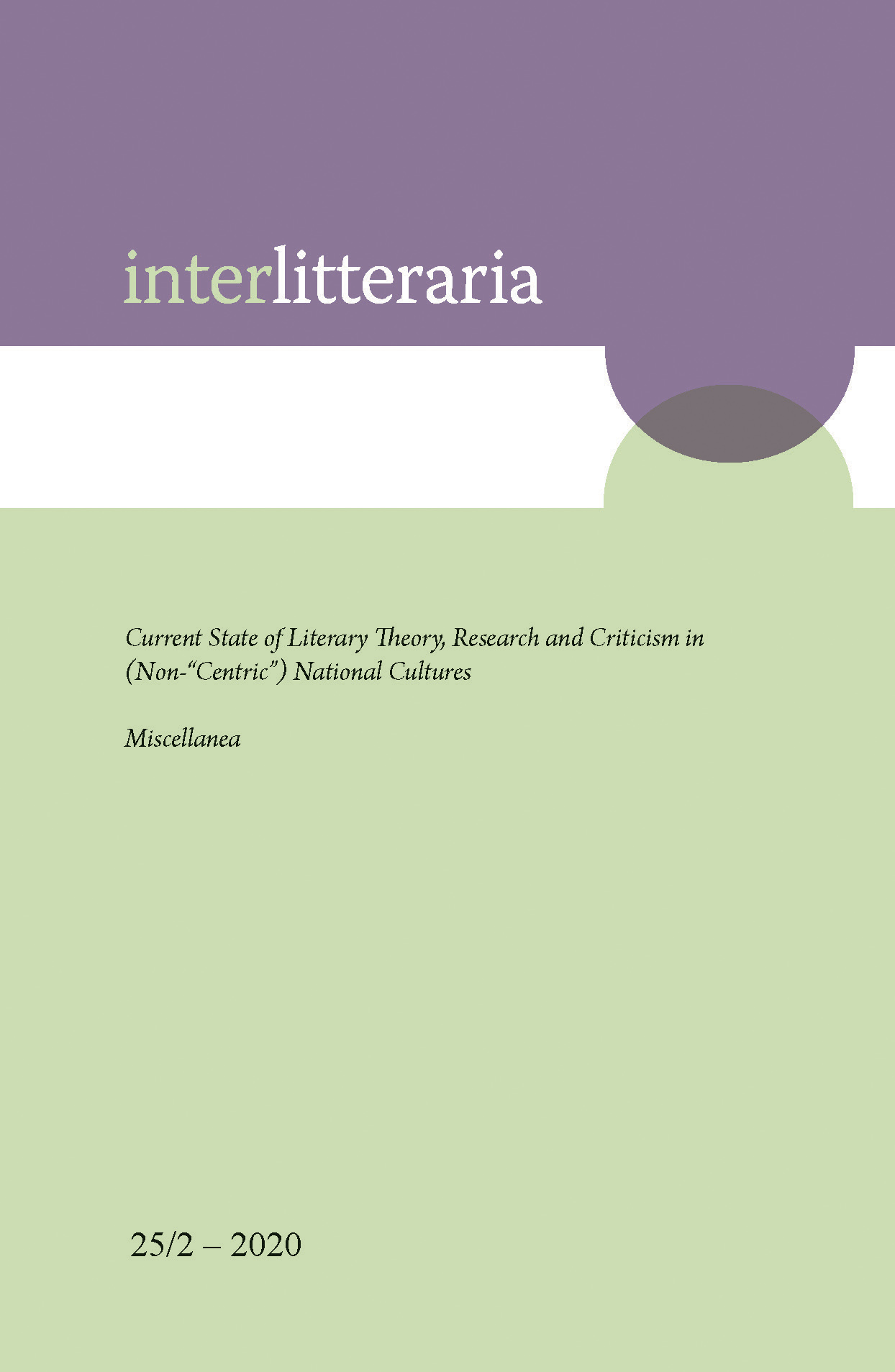„Ich werde eingetaucht / in vás“? Peter Waterhouses 'Prosperos Land' als Dynamisierung von T.S. Eliots 'The Waste Land'
DOI:
https://doi.org/10.12697/IL.2020.25.2.19Keywords:
poetry, language dynamics, ambiguity, multilingualism, monolingual paradigm, mother tongue, national language, language borderAbstract
’Ich werde eingetaucht/in vás’? Peter Waterhouse’s Prosperos Land as Dynamisation of T.S. Eliot’s The Waste Land. The assumption of the existence of well discernible national languages is at odds with the dynamic nature of language. It is part of the so-called “monolingual paradigm” and therefore implies inextricably linking people to their mother tongue, which is in turn tied to one respective ethnicity, culture and nation. However, languages are not always clearly discernible from one another and do not always appear in fixed, static forms. Instead, language is subject to dynamic changes, which are at the same time subject to political interests and language policies. The poems presented in this article exemplify how modern and contemporary poetry can use the conjuncture of multilingualism and ambiguity to create a sense of language dynamics themselves. Their poetics simultaneously question and make use of the assumption of static multilingualism. They unfold political problems from it and awaken in their readers a desire for proactive reading and (language) change. T. S. Eliot’s The Waste Land already problematizes the coexistence of the European languages as a challenge for understanding, suggesting that languages as well as their speakers might be untranslatably shut-off from each other. However, the poem also creates surprising synergistic effects from its multilingualism and ambiguity. This way, it invites its readers to connect and cross over (language) borders in an adaptive and poetic manner, stressing the importance and capability of poetry and learning for intercultural understanding. Prosperos Land by Peter Waterhouse perpetuates and even surpasses this movement. As the ambivalent bilingual, intertextual and ambiguous title suggests, the poem challenges the possibility of linguistic as well as national demarcation from the start. Moving away from strict language borders and rules, the poem highlights the transformative magic of an almost childish exploration of language itself.
Downloads
Downloads
Published
Issue
Section
License
The contents of Interlitteraria are published under CC BY-NC-ND licence.


